#Yasuni National Park
Text
Ecuadorians voted overwhelmingly on Sunday to reject oil drilling in a section of Yasuní National Park, the most biodiverse area of the imperiled Amazon rainforest.
Nearly 60% of Ecuadorian voters backed a binding referendum opposing oil exploration in Block 43 of the national park, which is home to uncontacted Indigenous tribes as well as hundreds of bird species and more than 1,000 tree species.
[...]
Sunday's vote makes Ecuador the first country to restrict fossil fuel extraction through the citizen referendum process, according to Nemonte Nenquimo, a Waorani leader.
"Yasuní, an area of one million hectares, is one of the most biodiverse places on Earth," Nenquimo wrote in a recent op-ed for The Guardian. "There are more tree species in a single hectare of Yasuní than across Canada and the United States combined. Yasuní is also the home of the Tagaeri and Taromenane communities: the last two Indigenous peoples living in voluntary isolation in Ecuador."
"Can you imagine the immense size of one million hectares?" Nenquimo added. "The recent fires in Quebec burned a million hectares of forest. And so the oil industry hopes to burn Yasuní. It has already begun in fact, with the Ishpingo-Tambococha-Tiputini (ITT) oil project on the eastern edge of the park."
2K notes
·
View notes
Text
GOOD NEWS:
Ecuadorians reject oil drilling in the Amazon, ending operations in a protected area
Ecuadorians voted against drilling for oil in a protected area of the Amazon, an important decision that will require the state oil company to end its operations in a region that’s home to isolated tribes and is a hotspot of biodiversity.
With over 90% of the ballots counted by early Monday, around six in 10 Ecuadorians rejected the oil exploration in Block 43, situated within Yasuni National Park. The referendum took place along with the presidential election, which will be decided in a runoff between leftist candidate Luisa González and right-wing contender Daniel Noboa. The country is experiencing political turmoil following the assassination of one of the candidates, Fernando Villavicencio.
Yasuni National Park is inhabited by the Tagaeri and Taromenani, who live in voluntary isolation, and other Indigenous groups. In 1989, it was designated, along with neighboring areas, a world biosphere reserve by the United Nations Educational, Scientific and Cultural Organization, also known as UNESCO. Encompassing a surface area of around 1 million hectares (2.5 million acres), the area boasts 610 species of birds, 139 species of amphibians and 121 species of reptiles. At least three species are endemic.
#south america#amazon#rain forest#science#animals#nature#yasuni#yasuni national park#ecuador#politics#oil
126 notes
·
View notes
Text
Ecuadorians voted against drilling for oil in a protected area of the Amazon, an important decision that will require the state oil company to end its operations in a region that’s home to two uncontacted tribes and is a hotspot of biodiversity.
Yasuni National Park is inhabited by the Tagaeri and Taromenani, who live in self-isolation. In 1989, it was designated a world biosphere reserve by the United Nations Educational, Scientific and Cultural Organization, also known as UNESCO. Encompassing a surface area of over 1 million hectares (2.5 million acres), it boasts 610 species of birds, 139 species of amphibians, and 121 species of reptiles. At least three species are endemic.
With over 90% of the ballots counted by early Monday, around 6 in 10 Ecuadorians rejected the oil exploration in Block 43, situated within Yasuni.
The outcome represents a significant blow to Ecuadorian President Guillermo Lasso, who advocated for oil drilling, asserting that its revenues are crucial to the country’s economy. State oil company Petroecuador will be required to dismantle its operations in the coming months.
The referendum took place alongside the presidential election, which will be decided in a runoff between leftist candidate Luisa González and right-wing contender Daniel Noboa. The country is experiencing political turmoil following the assassination of one of the candidates, Fernando Villavicencio.
#world news#world politics#south america#ecuador#amazon rainforest#oil drilling#Yasuni National Park#Tagaeri#Taromenani#United Nations Educational Scientific and Cultural Organization#UNESCO#endangered species#endangered animals#Block 43#President Guillermo Lasso#Petroecuador#Luisa González#Daniel Noboa#Fernando Villavicencio#2023
20 notes
·
View notes
Photo
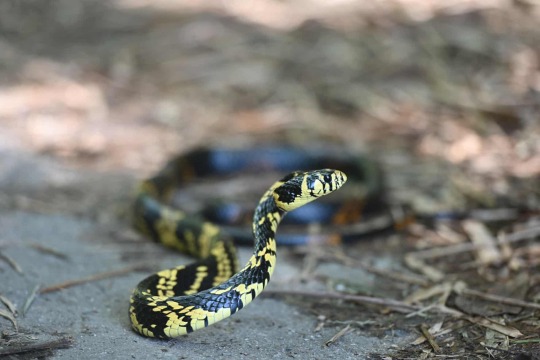
A snake in the Yasuni National Park deep in Ecuador’s Amazon rainforest jungle, one of the most biodiverse destinations on the planet.
Photograph: Stevens Tomas/ABACA/REX/Shutterstock
#stevens tomas#abaca#rex#shutterstock#snake#yasuni national park#ecuador#amazon rainforest#jungle#nature#animal#reptile#photographer
18 notes
·
View notes
Text
August 2023
Ecuadorian voters have overwhelmingly supported a ban on future oil extraction in a biodiverse section of the Amazon’s Yasuní National Park — a historic referendum result that will protect Indigenous Yasuní land from development. We speak with Helena Gualinga, a youth Kichwa Sarayaku environmental activist from Ecuador who has fought against oil drilling all her life and says the results of the vote not only set a “crucial precedent” as the first time a country has voted by democratic ballot initiative on resource extraction in the Amazon, but also demonstrates that “Ecuador is a country that is committed to protecting the Amazon rainforest and to protecting Indigenous peoples.”
#Ecuador#South America#Latin America#rainforest#Amazon rainforest#environmental#environmentalism#forests#oil#2023#2020s#Yasuni National Park#Indigenous communities#indigenous south america#Kichwa
0 notes
Text
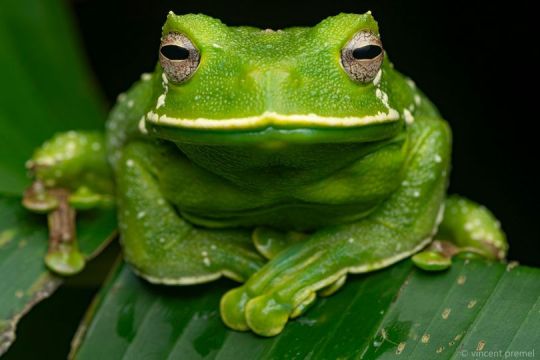

Pastaza Marsupial Frog (Gastrotheca longipes), female, family Hemiphractidae, Yasuni National Park, Ecuador
The females have a pouch, with an entrance at the rear of the back, in which she keeps the eggs. The young go through their tadpole stage in the pouch, and emerge as froglets.
photograph by Vincent Prémel
796 notes
·
View notes
Text
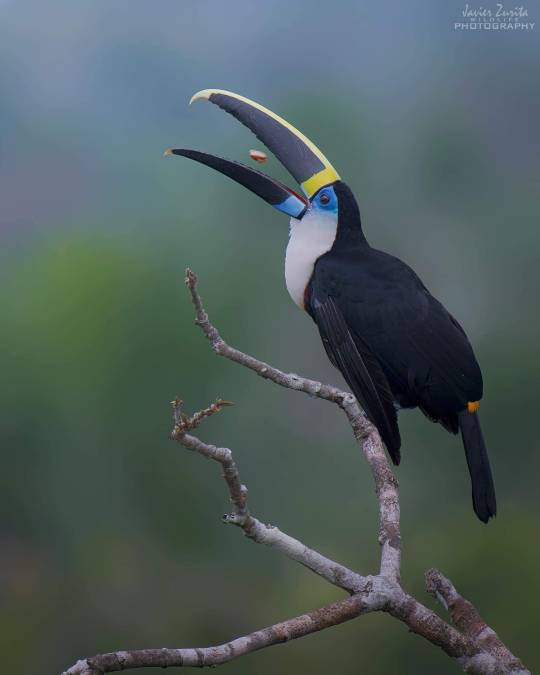
Javier Zurita Wildlife Photography
Amazon, a White-throated Toucan
https://www.javierzuritaphotography.com/
- at Yasuni National Park
91 notes
·
View notes
Text

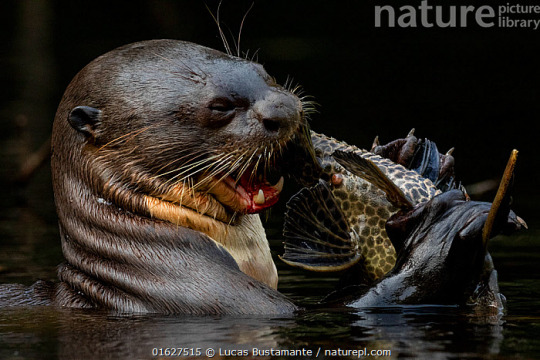
Giant river otter (Pteronura brasiliensis) eating a catfish.
Yasuni National Park, Orellana, Ecuador
Photos © Lucas Bustamante
143 notes
·
View notes
Text
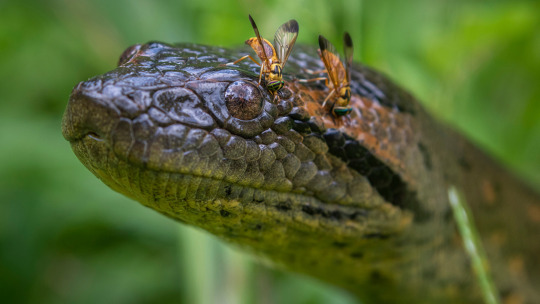
Botflies perch on the head of a green anaconda in Yasuni National Park in Ecuador. This may be a northern green anaconda, whose existence as a distinct species is currently disputed.
Photograph by Karine Aigner/Naturepl.com
9 notes
·
View notes
Text
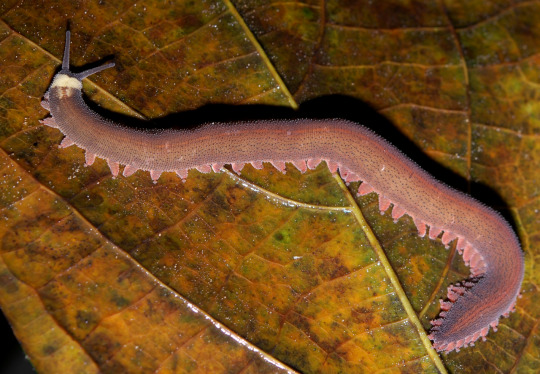
Velvet Worm, Oroperipatus sp., Yasuni National Park, Ecuador
photograph by Geoff Gallice
37 notes
·
View notes
Text
Ecuador banned Amazon oil. Brazil's Lula wants to drill
The timing spoke volumes: just as Ecuador announced its historic decision to halt oil drilling in a sensitive Amazon rainforest reserve, Brazil trumpeted its massive fossil-fuel investment plans -- which include oil exploration near the mouth of the Amazon river.

Oil is an increasingly uncomfortable subject for Brazilian President Luiz Inacio Lula da Silva, who casts himself as a climate crusader, but also faces criticism for his plans to grow Latin America's biggest economy with fossil fuels.
Brazil's climate contradictions got a glaring spotlight Monday, after Ecuador announced voters had decided in a first-of-its-kind referendum to halt oil drilling in the biodiverse Yasuni National Park.
"We hope the Brazilian government will follow Ecuador's example... and leave the oil in the Amazon estuary underground," Marcio Astrini, head of the Climate Observatory, a coalition of environmental groups, said in a statement.
Brazil, home to 60 percent of the Amazon, also faced criticism when it hosted a high-profile summit this month on the world's biggest rainforest, where Lula and other regional leaders ignored calls to adopt Colombian President Gustavo Petro's pledge to stop oil exploration.
Just hours after Ecuador's referendum result was announced -- winning praise from climate campaigners worldwide -- Lula's office sent out a press release from the energy ministry touting his administration's plans to invest 335 billion reais ($69 billion) in the oil and gas sector in the coming years.
Continue reading.
#politics#brazil#ecuador#environmentalism#amazon rainforest#ecuatorian politics#brazilian politics#luiz inacio lula da silva#oil industry#mod nise da silveira#image description in alt
14 notes
·
View notes
Photo

Walk into my parlor: A spider web is amazingly complex. And deadly. In the image above, featured on our Instagram page, an Amazon thorn spider (Micrathena schreibersi) feeds on a small stingless bee while hanging off a spiderweb in Ecuador’s Yasuní National Park. The spider in the photo is a female, with large spines on the abdomen, while the males are smaller and with shorter spines.
PHOTOGRAPH BY JAVIER AZNAR @JAVIER_AZNAR_PHOTOGRAPHY
#javier aznar#photographer#national geographic#spider web#amazon thorn spider#spider#micrathena schreibersi#ecuador#yasuni national park#nature
77 notes
·
View notes
Text
Ecuador votes to halt oil drilling in Amazonian biodiversity hotspot
In a historic decision, Ecuadorians voted on Sunday against the oil drilling of a protected area in the Amazon that is home to two uncontacted tribes and serves as a biodiversity hotspot.
With more than 90% of the ballots counted by early Monday, about six in 10 Ecuadorians rejected the oil exploration in the Block 44 area, situated within Yasuní national park, one of the world’s most biodiverse regions. The area is inhabited by the Tagaeri and Taromenane, who live in self-isolation.
3 notes
·
View notes
Text
Si al Yasuni 💗
From NACLA.org: On August 20, Ecuador made history with a 59 percent vote in support of a popular referendum to stop petroleum drilling in the Yasuní National Park, one of the most biodiverse areas on the planet. “It’s an example not just for Ecuador, but for the world,” said Alexandra Almeida of Acción Ecológica, an environmental organization based in the capital of Quito.
Keeping oil in the ground in Yasuní will save 410 million metric tons of greenhouse gasses— equivalent to the annual emissions of France—from entering the atmosphere. The vote marks a triumph for the country’s grassroots anti-extractivist, ecological, and Indigenous movements, whose road to victory comes from a decade of social and political conflicts over extractive industry policies.
Yasuní National Park is in part located in Waorani ancestral territory. It is also a unique area where South America’s richness of plant, amphibian, bird, and mammal species overlap, boasting the highest levels of biodiversity per square meter in the world. Over 150 threatened species reside there. Three Waorani groups—the Tagaeri, Taromenane, and Dugakeaeri—remain in voluntary isolation and are considered “uncontacted peoples.” Oil activity has driven illness, food insecurity, and massacres in the area


Waorani leader Nemonte Nenquimo shows hands stained with oil from a nearby spill in the province of Sucumbios, Ecuador, on June 26 [Courtesy of Sophie Pinchetti/Amazon Frontlines]

Napo river, Yasuni
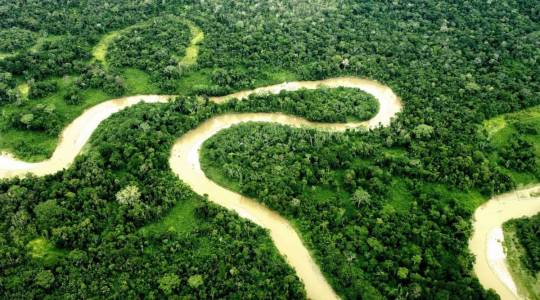
18 notes
·
View notes